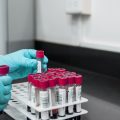How can you support the heroine in your life and navigate the healing process? Find your inner Chris Columbus.
Being ill is overwhelming. Anyone with ongoing illness is a heroine on an epic journey. This journey can be filled with plenty of bumps, roadblocks, U-turns, and forks (aka decision-making opportunities). There are some awe-inspiring moments as well.
Everyone’s experience of illness is different. Even heroines with the same diagnosis or symptom list will have different experiences of the illness or dis-ease; and the impact on their physical, emotional, mental and spiritual well being varies.
This unique journey your heroine is traveling is not a straight, engineered path moving from A to B to C, so this isn’t a process for a GPS-esque one-size-fits-most solution. The heroine needs a navigator. A valuable way to support the heroine in your life is to be her trusted navigator. Even Amelia Earhart had a navigator.
Because no two journeys are the same and there’s often uncharted territory, lists of things to do may or may not be relevant. No list can cover every circumstance. But anyone, in any situation can draw on inner resources and embody the characteristics of the navigator role. What navigator inspires you? Find a role model for yourself. As you support your heroine consider the traits of your role model and bring that essence into your being.
Here are a few ways to view this journey through the lens of a navigator and embrace your role in your heroine’s healing journey.
Identify the Destination
Most healing journeys have multiple destinations. Each encounter with a healthcare professional could be its own destination. There is the ultimate destination of well-being. The heroine determines the various destinations as the journey unfolds. Regardless of the destination, there are common characteristics to know you’re at a destination that supports your heroine. A destination that works:
- Feels comfortable ‒ whatever comfortable means to the heroine
- Strengthens and renews ‒ ultimately the destination is uplifting
- Encompasses movement on some level ‒ stagnation is not OK
Discuss this with your heroine so you’ll know when you’re on course. If during an appointment the heroine is uncomfortable or not feeling understood, this is feedback that you’re off course.
Pay attention to when the destination shifts. For example, what starts as getting relief for physical pain could shift to identifying underlying emotional trauma that impacts true healing.
Scout the Landscape
Wow, where to start with so much landscape to cover in the world of health, healing and well-being? This is intertwined with knowing the destination. When the destination is relief from symptoms, the landscape could be anything from acupuncture, to dietary changes to pharmaceuticals. When the destination is eliminating the root cause, you’re likely in the territory of older traditions that have studied health for centuries: Naturopathic, Homeopathic, Chinese, or Ayurveda. Pay attention to the destination to know which direction to scout.
Regardless of the landscape, it is helpful to:
- Curate information – narrow down the vast information into relevant pieces like a museum curator
- Bring a sense of curiosity – explore options, ask questions like a child
- Transform barriers into paths – go above, around, through, or chart a new path; a roadblock may be a sign to shift direction
Map the Cairns
Cairns are stone towers that have marked important places and travel routes for centuries. Your heroine may be struggling just to feel “normal” and have some sort of normal life, and feel how she used to feel. Even people who avidly journal or meditate may miss their own signposts. Having someone else note the journey, like a log book, can be valuable.
Cairns may mark straight routes, turning points, or places to pause and reflect; this could include:
- Shifts in mindset – for example a new lens of the meaning of the illness
- Noticing cause and effect – when the heroine feels different emotionally, physically, mentally or spiritually
- Joy – with so much focus on not feeling well, celebrate even small wins
It can be challenging for friends and family to how to support their heroine. Finding your inner navigator equips you to be supportive moment to moment, and respond to your heroine’s evolving journey.
We Need Your Help
More people than ever are reading Hormones Matter, a testament to the need for independent voices in health and medicine. We are not funded and accept limited advertising. Unlike many health sites, we don’t force you to purchase a subscription. We believe health information should be open to all. If you read Hormones Matter, like it, please help support it. Contribute now.
Yes, I would like to support Hormones Matter.
Editors note: this post was published previously on September 2011 under the title, Find your Inner Chris Columbus: Navigating the Healing Process. It was re-titled for publication today.
Image by Cloé Gérard from Pixabay.













